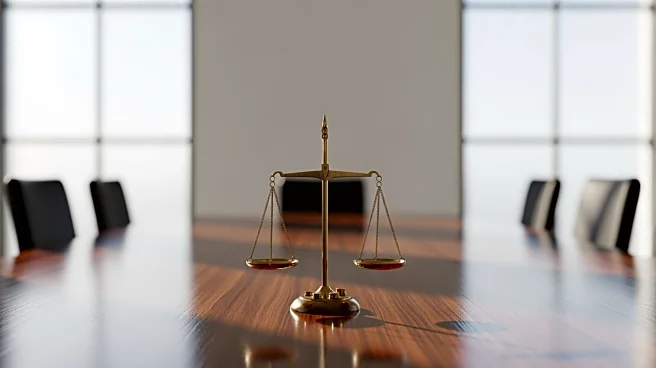What is the story about?
What's Happening?
Russian President Vladimir Putin has embarked on a state visit to Tajikistan, marking a significant diplomatic engagement with leaders of former Soviet states. The visit, which began on Wednesday, includes meetings with Tajikistan's President Emomali Rakhmon and a summit with leaders from Kazakhstan, Kyrgyzstan, Turkmenistan, and Uzbekistan. This gathering will expand to include Armenia, Azerbaijan, and Belarus for a broader Commonwealth of Independent States meeting. The visit underscores Russia's strategic pivot towards strengthening ties with Central Asian countries amid extensive Western sanctions over its military actions in Ukraine. Despite an International Criminal Court (ICC) warrant for Putin's arrest on alleged war crimes, Tajikistan, a member of the ICC, is unlikely to detain him due to its reliance on Russia for political, economic, and military support.
Why It's Important?
This visit highlights Russia's efforts to consolidate its influence in Central Asia as it faces increasing isolation from Western nations. The sanctions have pushed Russia to seek stronger alliances with neighboring countries, which are crucial for its geopolitical strategy. Tajikistan's decision not to arrest Putin, despite the ICC warrant, reflects the complex dynamics of international law and realpolitik, where economic and security dependencies often outweigh legal obligations. This situation also illustrates the limitations of international judicial bodies like the ICC, which lack enforcement mechanisms. The visit could further solidify Russia's role as a key player in Central Asia, potentially affecting U.S. and European interests in the region.
What's Next?
The outcomes of the meetings in Tajikistan could lead to enhanced economic and military cooperation between Russia and Central Asian countries. These developments may prompt reactions from Western nations, potentially leading to further diplomatic tensions. Human rights organizations, such as Human Rights Watch, are likely to continue advocating for accountability regarding Russia's actions in Ukraine, putting pressure on countries with ICC obligations. The geopolitical landscape in Central Asia may shift as these nations navigate their relationships with both Russia and Western powers.
Beyond the Headlines
The visit also raises questions about the ethical implications of international diplomacy, where strategic interests often overshadow human rights considerations. The ICC's inability to enforce its warrants highlights the challenges faced by international law in holding powerful leaders accountable. This situation may influence future diplomatic engagements and the global perception of international justice systems.














